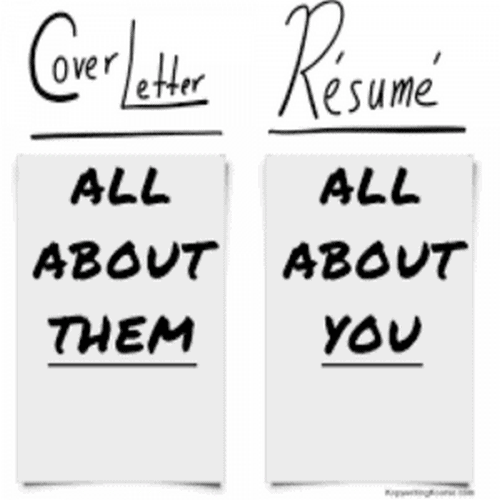
Does your resume go better with a cover letter?
Some people say no, because nobody reads them. I agree to a point. Not all recruiters read resume cover letter. But I think many recruiters don’t because so many they see are a bit “blah blah blah.”
That’s when the resume cover letter says nothing new or exciting, nor does it say anything about why the candidate wants the job. In a sea of such banality, one way to make your resume cover letter stand out, is just to do a good one. You can do more than that, though.
Here are 10 rules to help you in making a compelling cover letter.
Rule # 1
Even if the job is advertised through a recruitment consultant you can still do your research. Call them and connect with them. They will probably not give you their client’s name but they may give you an outline of the challenges of the role as they see them. Your resume cover letter becomes far more engaging if you can tell the recruiter how they’ve inspired you to want to take this opportunity further.
Rule # 2
If you know who the company is, then there is no excuse for not looking up the website, doing thorough research and reading the LinkedIn profile of their company executives. And that’s just as a start.
The aim of this research is for you to find some compelling reasons to work for that organization and some ways that you can add value. So many people forget to say this on their cover letters.
Rule # 3
Your cover letter should clearly show you have read the job advertisement. The way you do this is to pick the key criteria in the advertisement and point out how you meet this in your letter.
Also use keywords from the advertisement, throughout your resume cover letter. That way it has a better chance of being picked up in screening software.
Rule # 4
Try to keep your cover letter to one page and three or four paragraphs.
The only real exception to this rule is if you are asked to respond to an “expression of interest.” An expression of interest is a mini-government selection criterion where you outline how you meet job criteria. Then your letter may run to two to three pages.
Rule # 5
Don’t be boring. Try to keep your own voice.
Rule # 6
Keep a logical format. I use “hook, ” “book, ” and “took.”
“hook” :- specific and memorable reasons as to why you want the role
“book” :- a coherent argument as to why you should be hired
“took” :- what you want to happen as a result of an employer reading your letter
Rule # 7
Be personal. If you have someone’s name use it. Ideally, a cover letter should start with a title Ms, Mr or Mrs.
The exception to this is when informality is invited. A first name is more acceptable in an informal email, perhaps if you already have had a conversation with the contact person.
Rule # 8
Type it. This sounds so basic. But I have to say this next bit because I have been asked this question.
Yes.
An application in writing generally means typed.
Rule # 9
Plain white paper please. Pretty pink perfumed pages or something similar are never a good idea. Your letter will be unique, but for the wrong reasons.
Rule # 10
OK I’ve crammed a few things here into one rule. A cover letter should not be:
– a repeat of your resume
– a standard letter that you send out to everyone
– hard to read
– full of spelling and grammar mistakes
There you are! You got those rules. Make a wow impression from your recruiters and employers with your compelling resume cover letter.
